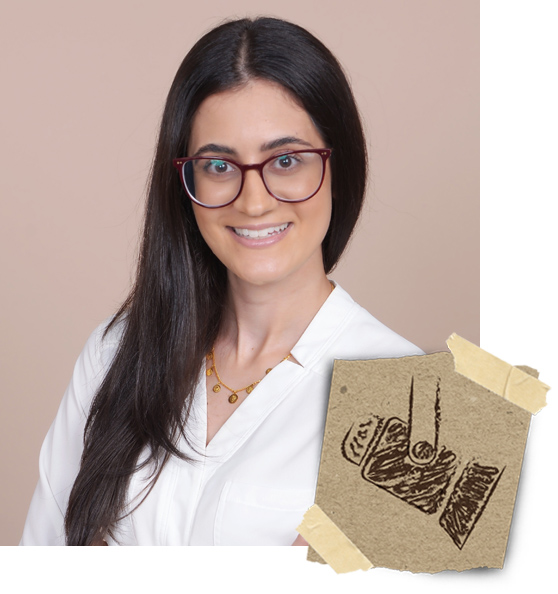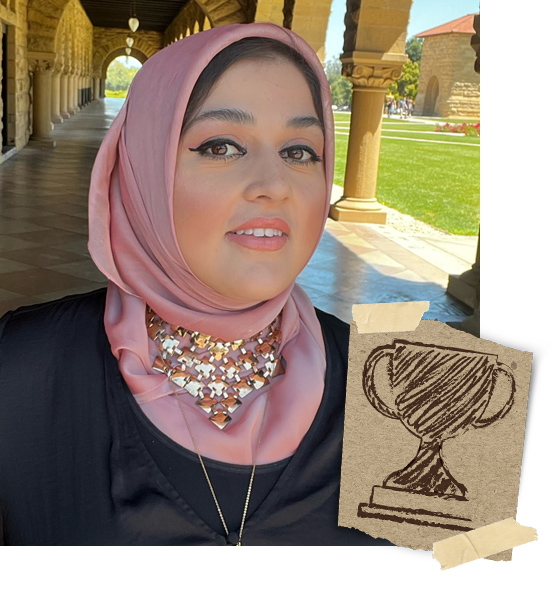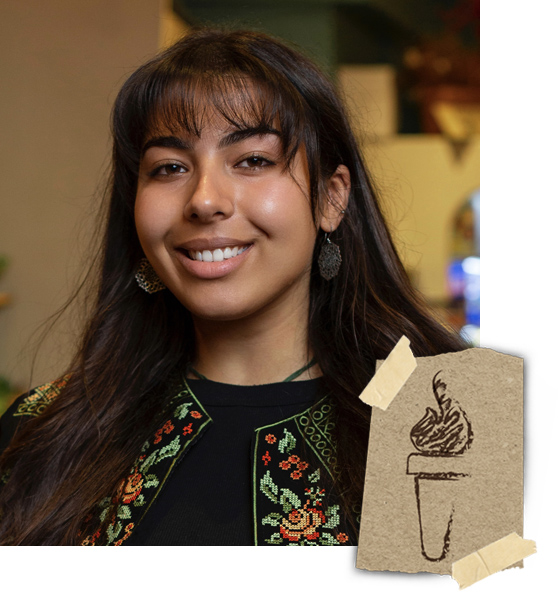Diversity Spotlight: Sarise Hammad
April 9, 2024 - Emily Jodway
 Sarise Hammad is a 2020 graduate of the MSU College of Social Science, earning a degree in Global and International Studies with a focus on Peace and Conflict. A child of Palestinian immigrants, Sarise’s life and passions have been shaped by her cultural history and experiences living in communities of other refugees and immigrants. She now lives in Chicago, working for the Syrian Community Network as an Accredited Immigration Representative, helping refugees navigate immigration laws and life in America. We are honoring Sarise with our Diversity Spotlight this April during Arab American History Month.
Sarise Hammad is a 2020 graduate of the MSU College of Social Science, earning a degree in Global and International Studies with a focus on Peace and Conflict. A child of Palestinian immigrants, Sarise’s life and passions have been shaped by her cultural history and experiences living in communities of other refugees and immigrants. She now lives in Chicago, working for the Syrian Community Network as an Accredited Immigration Representative, helping refugees navigate immigration laws and life in America. We are honoring Sarise with our Diversity Spotlight this April during Arab American History Month.
Sarise’s parents came to America from Palestine over 30 years ago, settling in the Novi area. Despite leaving their home country, her family continued to stay involved with the refugee community here in Michigan. Sarise grew up following in the footsteps of her mother and father, who have dedicated their lives as Americans to loving and representing their homelands from afar.
“I’ve always had the love for making people feel like they can be connected back to their homeland, but also feel like they can be safe here,” Sarise explained. “When I was a little kid … This is kind of cliche, but I always dreamed that I could fly, because I missed my family in Palestine and it was so difficult to go back and visit. I figured the next best thing would be to learn immigration law and how to make laws more accessible for people looking to get citizenship over here.”
Following in her two older brother’s footsteps, Sarise came to Michigan State after spending a year living and studying in Palestine at Birzeit University. She describes the experience as her first steps into the field of immigration law. She immersed herself in the culture, learning to read and write Arabic and spending time with family. At MSU, she concentrated her global studies major on issues in the Middle East and studied abroad several summers in addition to participating in undergraduate research. Working with sociology professor Stephen Gasteyer, Sarise did a study on the lack of accessible and clean drinking water in the Occupied Palestinian Territories. She was given the opportunity to present this research at MSU’s Diversity Research Showcase.
“It’s sometimes funny, seeing people’s reactions who think that Michigan State is just a party school, and sure, it was fun in that respect, but I loved the academia of it,” she said. “My professors were amazing. I felt so safe. I was taking classes where for the first time in my academic experience, I actually felt seen.”
Sarise also spent time working with several different non-governmental organizations over the summers. She participated in a state-sponsored immersion program in Oman, where she got to learn classical Arabic while experiencing Oman’s culture with other students from America and the United Kingdom. She also worked for the Amel Association in Lebanon.
“I was working in Palestinian refugee camps on the ground every day there, providing support in any way I could,” she explained. “One week I was an English teacher, for example. I would do walkthroughs of the refugee camp to understand the conditions that people were experiencing and still are experiencing in Lebanon currently.”
Post-graduation, Sarise worked for a corporate immigration law firm before shifting into the nonprofit realm and earning her legal accreditation from the Department of Justice. “I have had the honor of representing on cases involving various immigrant communities, with special honor given to our southern arrival migrants, refugees, asylees, and legal permanent residents from all over the world,” she said.
Sarise hopes to see a day in which more Arabs and Muslims are involved in more nonprofit and advocacy spaces. “There’s really not a lot of us involved in this field,” she explained. “When you think about it, it’s kind of sad. We already have the love for the culture. It’s been instilled in us since we were so young. We have that spark within us that is ready at any point to stand in unison with our people.”
With this and several other career fields and communities seeing underrepresentation of Arab individuals, Sarise emphasizes the importance of highlighting the accomplishments of Arab Americans in order to bring to the forefront their impact on our country.
“I think it brings attention to the work that has been done, the work that is continuing to be done, and the work that will be done in the future. It’s beautiful to be able to acknowledge that.”
Read more:

Diversity Champion
Faculty/Staff
Dr. Nura Sediqe
Dr. Nura Sedique is an Assistant Professor in the Department of Political Science and a core faculty member in the Muslim Studies program. Her research focuses on the intersections of race, religion and gender with political behavior and preferences.

Diversity Torch
Student
Amina Darabie
Amina Darabie is a senior majoring in Interdisciplinary Studies with minors in Arabic and experience architecture. She is an impassioned advocate for study abroad opportunities and intercultural education, and making these experiences more accessible for all students.

Diversity Matters
We strive to cultivate an inclusive and welcoming college environment that celebrates a diversity of people, ideas, and perspectives.

